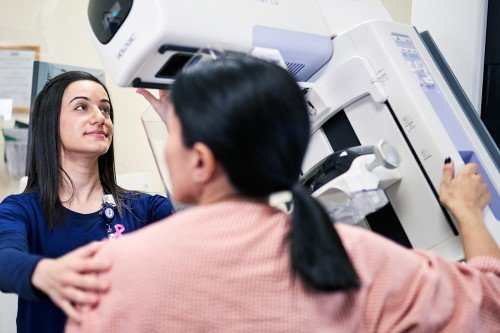
When it comes to cancer risk, birth control sometimes gets a bad rap. “Usually when we talk about birth control and cancer, we’re talking about the pill and a possible increased risk of breast cancer,” says Memorial Sloan Kettering gynecologist Deborah Goldfrank, who cares for women with cancer and those who have a high risk of cancer.
But that’s not the full story, she says. Birth control pills and other forms of birth control can also dramatically reduce a woman’s risk of gynecologic cancers, such as ovarian cancer and endometrial (uterine) cancer. Here’s what every woman should know about birth control and cancer risk.
1. Not all birth control methods affect cancer risk.
Hormonal and even some nonhormonal birth control methods can have an impact on cancer risk, explains Dr. Goldfrank. The two most common hormonal birth control options for women are birth control pills and hormone-secreting intrauterine devices (IUDs). IUDs are small metal or plastic devices that are placed in the uterus by a gynecologist to prevent pregnancy.
The pill usually contains a combination of the hormones estrogen and progestin. Hormonal IUDs contain progestin only. The pill works by regulating a woman’s monthly cycle and preventing ovulation. Hormonal IUDs cause the cervical mucus to thicken, disrupting the path of sperm. Hormonal IUDs also cause the endometrial lining to thin. This can prevent a fertilized egg from attaching to the uterine wall.
The approaches differ, but both the pill and hormonal IUDs are similar in that each contains synthetic hormones. These hormones might increase the risk of some gynecologic cancers while, at the same time, helping protect against others.
2. Birth control can lower a woman’s risk of gynecologic cancer.
Both birth control pills and hormonal IUDs can significantly reduce the risk of ovarian cancer and endometrial cancer. “Using birth control pills can actually reduce ovarian cancer risk by up to 50 percent,” says Dr. Goldfrank. “This protection appears to last for many years after stopping use.” The pill can also significantly lower the risk of endometrial cancer.
Because hormonal IUDs thin the endometrial lining, they can sometimes be used to prevent or even treat early-stage endometrial cancer. Like the pill, hormonal IUDs also appear to reduce the risk of ovarian cancer.
3. The pill might cause a small increase in breast cancer. It’s unclear if hormonal IUDs do the same.
“The link between birth control pills and breast cancer has been controversial,” says Dr. Goldfrank. “Studies looking at this have gone back and forth.”
Birth control pills might increase the risk of breast cancer a small amount, especially for women who currently use or who recently used birth control pills. Any elevated risk seems to decrease over time after stopping use.
Even less is known about the link between hormonal IUDs and breast cancer, says Dr. Goldfrank. “It’s not clear yet,” she says.
4. The right birth control for you might depend on your age.
Dr. Goldfrank recommends that women who are taking the pill into their late 40s and 50s have a conversation with their doctor about the health risks. She points to recent data that suggests an increased risk of breast cancer among older women who are on the pill.
5. Nonhormonal IUDs are a good option for women with breast cancer.
“Birth control pills and hormonal IUDs are generally not good options for women with hormone-sensitive cancers, such as breast cancer, because they may stimulate the growth of tumor cells,” says Dr. Goldfrank. “They can also increase the risk of other health problems, including blood clots and stroke.” It’s important to talk with your oncologist if you are diagnosed with a hormone-sensitive cancer to better understand the health risks and benefits of birth control.
However, says Dr. Goldfrank, “Nonhormonal IUDs are not thought to increase cancer risk. And studies have indicated that copper IUDs might actually reduce your risk of cervical and endometrial cancer. We’re not certain why.”
6. Women with a BRCA gene mutation or other inherited cancer risk have options.
Women who have an increased gynecologic cancer risk due to a BRCA mutation or Lynch syndrome may receive a significant cancer risk reduction from using the pill or a hormonal IUD.
Dr. Goldfrank recommends that women with an inherited cancer risk speak with their gynecologist about the best method for them. The possible small increased risk of breast cancer that might be associated with long-term hormonal contraception use needs to be considered alongside other benefits and risk factors.










